Curated OER
Benthic Macroinvertebrates
Students survey and describe a stream ecosystem. They sample the benthic macroinvertebrate populations of a given stream and determine community structure through the use of the Chandler Index and a species diversity index.
Curated OER
Wildlife, Wolves, Endangered Species
Learners use the Internet to research wildlife and conservation efforts. They examine pictures and graphics to research endangered species and humans role in their lives. They also use math to measure areas of habitats and add the number...
Curated OER
Environmental Science/Water Pollution
Students study natural habitats, aquatic life, renewable and non-renewable resources. They discuss conservation efforts for sea otters and desert toad in this units.
Curated OER
How the Environment Effects our Feelings
First graders compare images and discuss their feelings created by an artist's work. They explore the correlation between experiencing feelings in art and literature and feelings caused by changes in weather.
Curated OER
Snakes and Scarves
Second graders explore linear patterns using snakes as the context. During the week we examine, construct and record snakes of different patterns. We also put scarves on our snakes and ask others to predict what is hidden.
Curated OER
Bald Eagle Basic Skills Math Practice
Students solve basic skills math problems involving eagles. They read and discuss facts about eagles and view a video. They complete the Eagle Math worksheet and check their answers. They create additional problems and solve them.
Curated OER
Bald Eagle Population Graphing
Students create graphs to illustrate the bald eagle population. They identify the population of bald eagles in Minnesota and the United States. They create three graphs to represent the population data including a line, bar, and...
Curated OER
Molecular Approaches to Evolution
Students are introduced to working with molecular data. The first activity does both simulated and original data are used to compare amino acid, protein or DNA differences to construct phylogenetic trees or cladograms. These activities...
Curated OER
Beyond the Tap
Students explain the basic properties of a watershed including how water flows from higher to lower elevations and how watersheds are interconnected. They comprehend how the placement of buildings, roads, and parking lots can be...
Curated OER
Sharkland Wiki
Students, while researching the waters around southern Africa and viewing a video of the episode "Sharkland" from Thirteen's series NATURE, critique reliability of online resources and analyze the various components of a wiki. They...
Curated OER
Vocabulary Review: Logically Complete Sentences
In this vocabulary worksheet, learners check words that can correctly complete sentences, 8 sentences total. Sentences can be completed using more than one word choice.
Curated OER
Introduction to Ecology
Eighth graders identify the living and nonliving components of an ecosystem. In this ecology lesson, 8th graders explain the role each organism plays. They participate in class discussion and answer a quiz at the end of the lesson.
Curated OER
Galapagos Rift Expedition Come On Down!
Students research the development and implementation of a research vessel/vehicle used for deep ocean exploration. In this oceanography lesson, students calculate the density of objects by determining the mass and volume.
Curated OER
Wildlife Habitat
Students explain what a habitat is and describe its four elements. They see how an area's habitat suitability varies with different species of wildlife. They name factors that affect habitat suitability.
Curated OER
Designing Tools for Ocean Exploration
Students research the methods and tools used in ocean exploration. They, in groups, simulate an ocean exploration and consider what tools facilitate the exploration's objectives.
University of Texas at Austin
University of Texas: Potato Fish Adaptations [Pdf]
Using their knowledge of fish's adaptations, students create their own imaginary fish!
University of Florida
Florida Museum of Natural History: Fish Adaptations
This site has pictures that illustrate the many ways fish have adapted to make the most of life in their environments. The explanations are short and easy to understand.
University of Michigan
Michigan Sea Grant: Teaching Great Lakes Science: Fish Identification
In this lesson, students examine the physical characteristics of fish that live in the Great Lakes and identify common features that help species to survive in that environment. Downloadable resources include a fish poster, fish family...
CK-12 Foundation
Ck 12: Biology: Fish Structure and Function
[Free Registration/Login may be required to access all resource tools.] Describes the characteristics of fish suited for aquatic lifestyles.
CK-12 Foundation
Ck 12: Biology: Fish Structure and Function
[Free Registration/Login may be required to access all resource tools.] Describes the characteristics of fish suited for aquatic lifestyles.
PBS
Pbs Learning Media: Animal Adaptations: Fishing Cat
Learn how the semi-aquatic fishing cat evolved millions of years ago to live in the wetlands of South and Southeast Asia in this video from NATURE: The Story of Cats (4:18). The accompanying activity prompts students to write an...
CK-12 Foundation
Ck 12: Life Science: Cartilaginous Fish
[Free Registration/Login may be required to access all resource tools.] Cartilaginous fish range in size from the dwarf lanternshark, at 6.3 inches, to the 50-foot whale shark. These fish have a jaw and evolved from the jawless fish....
Denver Zoo
Denver Zoo: Fishing Cat
The Denver Zoo features a comprehensive overview of the fishing cat focusing on its habitat, range, adaptations, diet, physical characteristics, and more.
TED Talks
Ted: Ted Ed: How Do Fish Make Electricity?
How do fish produce electricity? Eleanor Nelsen illuminates the science behind electric fish.
Other popular searches
- Clown Fish Adaptations
- Puffer Fish Adaptations
- Bony Fish Adaptations
- Potato Fish Adaptations
- Fashion a Fish Adaptations
- Adaptations of Fish



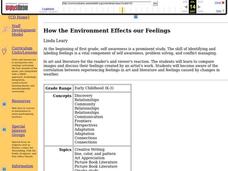

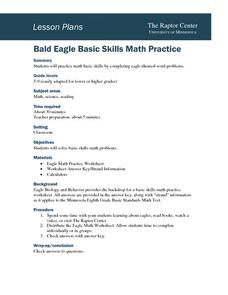


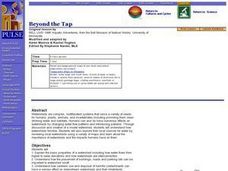



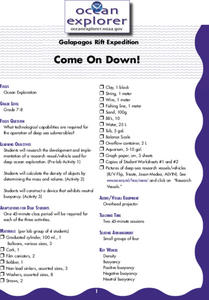

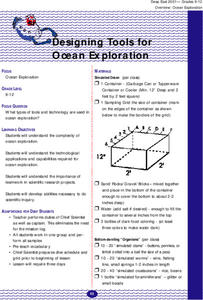
![University of Texas: Potato Fish Adaptations [Pdf] Lesson Plan University of Texas: Potato Fish Adaptations [Pdf] Lesson Plan](https://d15y2dacu3jp90.cloudfront.net/images/attachment_defaults/resource/large/FPO-knovation.png)





